
Fateless, the directoral debut from Hungarian cinematographer Lajos Koltai stars Marcell Nagy as György, a Jewish teenager from Budapest who bares witness to the full horrors of the holocaust, first hand. Initially shielded from the truth by his family (who likely aren't fully aware of what's going on themselves) when his father is sent away to a labour camp, György soon follows along with other Jewish children (all of whom have passes). He is first sent to Auschwitz where he survives merely by lieing about his age; from there he is sent on to several labour camps including Buchenwald where his spirit is broken as he finds himself alienated by Yiddish-speaking Jews and Gypsies. His soul is broken, body shattered and yet with the liberation of the camps (featuring an appearance by Daniel Craig as an American GI) the boy, who has long-since grown into a man, manages not only to find hope in the future but a wistful longing for the time when he was in the camps.

Technically-speaking the film is a highly impressive piece of visual art - the outstanding use of filters that give the film a dated, sepia-like tone echoing the narrative's pervading sense of melancholy is rarely less than sublime. Likewise the way the visuals drift, as day does into night, into haunting monochrome bringing to the scenes an acute sense of the camps' harshness is as superb as Koltai's control of the camera's movement and framing of his shots. And the performances of the cast are equally incredible - from the young lead through to the camp guards and those fellow victims who suffer alongside the protagonist; it's a very finely crafted piece of film all round - except that is, for the editing. At 140 minutes the film's narrative is comprehensive, but let down considerably in the middle hour by languid editing that fades one scene into another seemingly bereft of context. This results in between 40 and 60 minutes of what i can only describe as "camp vignettes", individual scenes that although revealing in their own individualistic way, do not flow together in any coherent sense instead drawing out a slow-moving plot far longer than is strictly necessary. It's not a film one should find boring - the journey is as incredible as the lessons learned, but this slow mid-section unhelpfully veered from patience-testing to sheer boredom (to the point that i almost fell asleep). Survive this lengthy, slow section that lacks dialogue but remains nonetheless poignant, and you arrive at the film's conclusions in the final reel, which are not, in any way shape or form, expected or particularly easy to take.

The film's title, Fateless embodies the key theme of the film, a theme that in one way or another runs through every single scene and line of dialogue - the "Jewish fate". Early in the film the young protagonist is told by his elders that the Jews are fated to suffer for their past sins - that a history of persecution is a form of divine penitence, and that only God can every forgive the Jews on the day of judgement once they have atoned for previous wrongs. Accepting this, the majority of the film - which takes place in concentration camps - would seem to be Jews simply accepting their fate. Of course this isn't the case though, indeed it's a dichotomy that the film doesn't really seem to adress, and when it does try to debate the issue it does so in a rather cack-handed manner. The film starts by showing Hungarian Jews resigned to being persecuted as if it is something they should expect, merely by matter of cultural heritage, but no one ever says in the film anything to the effect that the camps are necessary, or something that should simply be "taken on the chin" because of the Jewish fate. Likewse, it is one thing to say that the Jewish race is united by this fate, but what about when Jewish communities become fragmented, either forcibly by external factors or simply by internal politics?

For instance the Yiddish-speaking Jews in one of the camps ostrasise the young Hungarian boy as an outsider; they're all suffering the same tortures at the hands of the camp officers, they all have to stand in the square until they collapse but they point blankly refuse to get on with the boy from Budapest. This of course, is just one instance in the film but there are more - the Gendarmes who turn them over to the Nazis in the first place, and the guy who tries to take all their jewelry on the train. In living out this shared fate, the Jews of the film, far from unifying under the weight of oppression of revolting against it, find themselves accepting imprisonment then turning against their fellow prisoners for what - to outsiders - would seem the pettiest of reasons. My concern is not that there weren't internal conflicts in camp populations (i'm sure there were), merely that this film shows us these arguments but never says why - no reason is given for these people turning against each other and nor, perhaps more cruelly, is any context given to the prisoners who take command of the others, which the film presents as some form of capitualtion with the SS. The detailing of real events, and life in the camps is impressive and should be commended, but it is the handling of these themes of guilt, and dealing with persecution that should be criticised i feel.

In saying [above] that the conclusions of the film "are not... particularly easy to take" I am referring to the central character's fond memories of the camps in which he suffered for so long. How can someone whose body was shattered, whose soul was close to destruction amidst the inhuman conditions inflicted upon him by an invading force, possibly have fond, positive memories of the concetration camps? To be honset, to say the boy misses the camps isn't true; what he misses is the sense of community with those who he developed friendships with. They suffered innumerable wrongs in those horrific places, but the boy choses to remember the friends he made and the spirit of comraderies that developed as they toiled together through the troubles. As much as i have said about the community being torn apart, the protagonist does not look at it like this at all, chosing [unconsciously i think] to overlook the horrors he witnessed and latch onto the few positive memories he has left. To me this seems a clear parallel to the Jewish fate the film explores - the Jewish community, in the eys of the boy, chose to remember the negatives of thier past that have become so entrenched in culture and tradition rather than celebrating the positive things the Jewish people have accomplished and experienced.

Of course this is an entirely reasonable suggestion, and one worthy of discussion and debate, but again its the context within the film that i take umbrage with. Ultimately, the film presents the boy's opinion as the be-all and end-all of it. It seems to be saying "stop being so down; look on the bright side" but completely overlooks the fact that the boy spent very little time whatsoever in Aushwitz (or any extermination camp for that matter) to the point that when asked, he can't say he saw the chimneys fom the gas chambers. One of the boy's close friends is killed at Aushwitz, and his father never returns from the camp he was sent to, so perhaps the boy is experiencing some form of denial - the mental scarring that being thown ont a pile of dead bodies must do to a person is unimaginable - but the film never suggests this is the case. The problem, i guess, is that i felt the film told me how I should think, whilst negating relevant details like the boy being young (and thus still impressionable and what he did and didn't actually see. Suggesting the stance is brilliant, but without any opposing view i was left with a slightly bitter taste in the mouth.

All round Fateless is a brilliantly constructed and performed film that raises many important issues, though restricted by the limitations of the autobiographical [Nobel prize-winning] source text and never really exploring the issues as fully as perhaps possible, it is nevertheless essential viewing. A film that leads on from the final scene of Fateless would be very interesting indeed in this viewer's opinion. 7/10




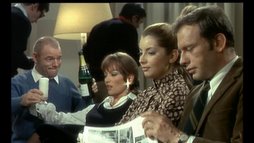
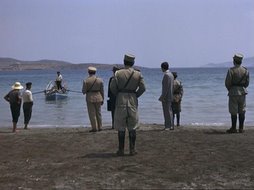

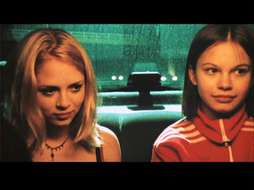
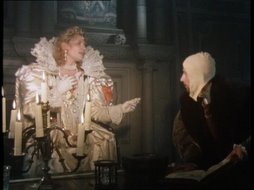

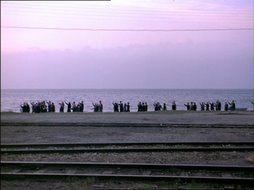
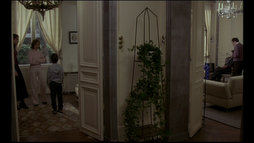
3 comments:
longchamp, ray ban sunglasses, chanel handbags, nike air max, louis vuitton, replica watches, longchamp outlet, louis vuitton outlet, ugg boots, nike roshe run, tory burch outlet, ray ban sunglasses, air max, louis vuitton outlet, uggs on sale, longchamp pas cher, louboutin pas cher, kate spade outlet, louis vuitton, oakley sunglasses, prada outlet, oakley sunglasses, longchamp outlet, gucci outlet, nike air max, nike free, oakley sunglasses, nike free, michael kors, tiffany jewelry, prada handbags, louboutin, polo ralph lauren outlet, christian louboutin outlet, ralph lauren pas cher, replica watches, polo ralph lauren outlet, nike outlet, louboutin shoes, louboutin outlet, sac longchamp, ugg boots, louis vuitton, air jordan pas cher, burberry, oakley sunglasses, jordan shoes, cheap oakley sunglasses, ray ban sunglasses, tiffany and co
moncler, canada goose outlet, canada goose outlet, swarovski crystal, thomas sabo, louis vuitton, pandora jewelry, wedding dresses, pandora jewelry, moncler, supra shoes, ugg,uggs,uggs canada, pandora charms, moncler, canada goose, swarovski, lancel, barbour jackets, ugg,ugg australia,ugg italia, moncler, moncler, moncler outlet, canada goose uk, karen millen, moncler, barbour, canada goose, hollister, montre pas cher, marc jacobs, pandora charms, juicy couture outlet, toms shoes, moncler, replica watches, sac louis vuitton pas cher, bottes ugg, doudoune canada goose, juicy couture outlet, ugg boots uk, ugg pas cher, links of london, canada goose, louis vuitton, louis vuitton, canada goose, louis vuitton, coach outlet
I was excited to discover this website
http://www.kuwait.prokr.net/
http://www.emirates.prokr.net/
Post a Comment